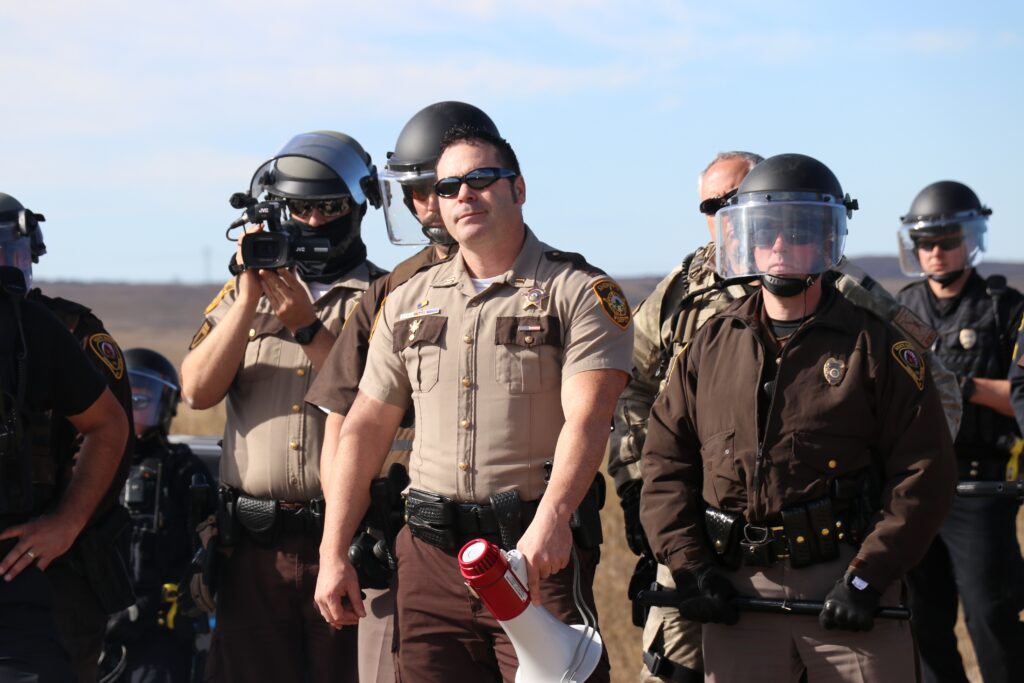
In the past four years, Tennessee has passed multiple laws aimed to protect fossil fuel projects from community challenges, like the law that preempts local governments from blocking fossil fuel projects, or the one that allows the state to boycott banks that divest from fossil fuels.
One of these recent laws targets protestors. In 2019, Tennessee criminalized protests against fossil fuels by expanding the definition of “critical infrastructure” to include oil and gas pipelines – and changed the existing misdemeanor offenses to felony offenses.
Last week, state lawmakers passed new legislation that would further criminalize activity that “destroys, injures, interrupts, or interferes with critical infrastructure,” raising the charge from a Class E felony to a Class C felony if the damages equate to at least $1,000.
Bill sponsor Rep. Clark Boyd, R-Lebanon, said the bill is aimed at people who physically harm critical infrastructure, which was already illegal prior to the 2019 law.
“What this bill is seeking to do is to get these people that are taking high powered rifles and going to substations and shooting out breaker boxes and junction boxes…and attempting to disrupt the electrical supply to a population,” Boyd said.
What he’s describing is pretty uncommon. The 2019 critical infrastructure law has not been used since it passed, according to an amendment of the new legislation, which says there have been zero charges in the past five years.
But these types of laws have been used in other states. In Minnesota, nearly 900 protestors have been arrested for protesting the construction of an oil pipeline by Enbridge, the same company that is working with the Tennessee Valley Authority on plans to construct a 117-mile pipeline for a new natural gas plant that would replace coal power at the Kingston Fossil Plant.
Protests against fossil fuels, especially ones led by Indigenous communities and environmentalists, can be effective at slowing or even halting projects. In 2016, North Dakota frequented national news as the Standing Rock Sioux Tribe demonstrated against an oil pipeline being built by Energy Transfer Partners, the company that owns the pipeline that spilled oil in Tennessee last year.
State legislation criminalizing protests followed the next year, and now at least 17 states have such laws, which were drafted in part by the conservative American Legislative Exchange Council, according to a report by Climate Cabinet.
“We know these bills are directly related to these protests,” Emma Fisher, the deputy director at Climate Cabinet, told WPLN News last year. “The way they’re written is that harsh penalties and open-ended definitions create a situation for protestors that is intentionally vague and risky.”
Locally, the Tennessee Valley Authority has several fossil fuel projects in the works that will involve more than a hundred miles of new pipelines. In addition to the Kingston project, TVA is pressing forward to build a new gas plant at its Cumberland Fossil Plant, which will require the construction of a 32-mile pipeline in Dickson, Houston and Stewart counties.

